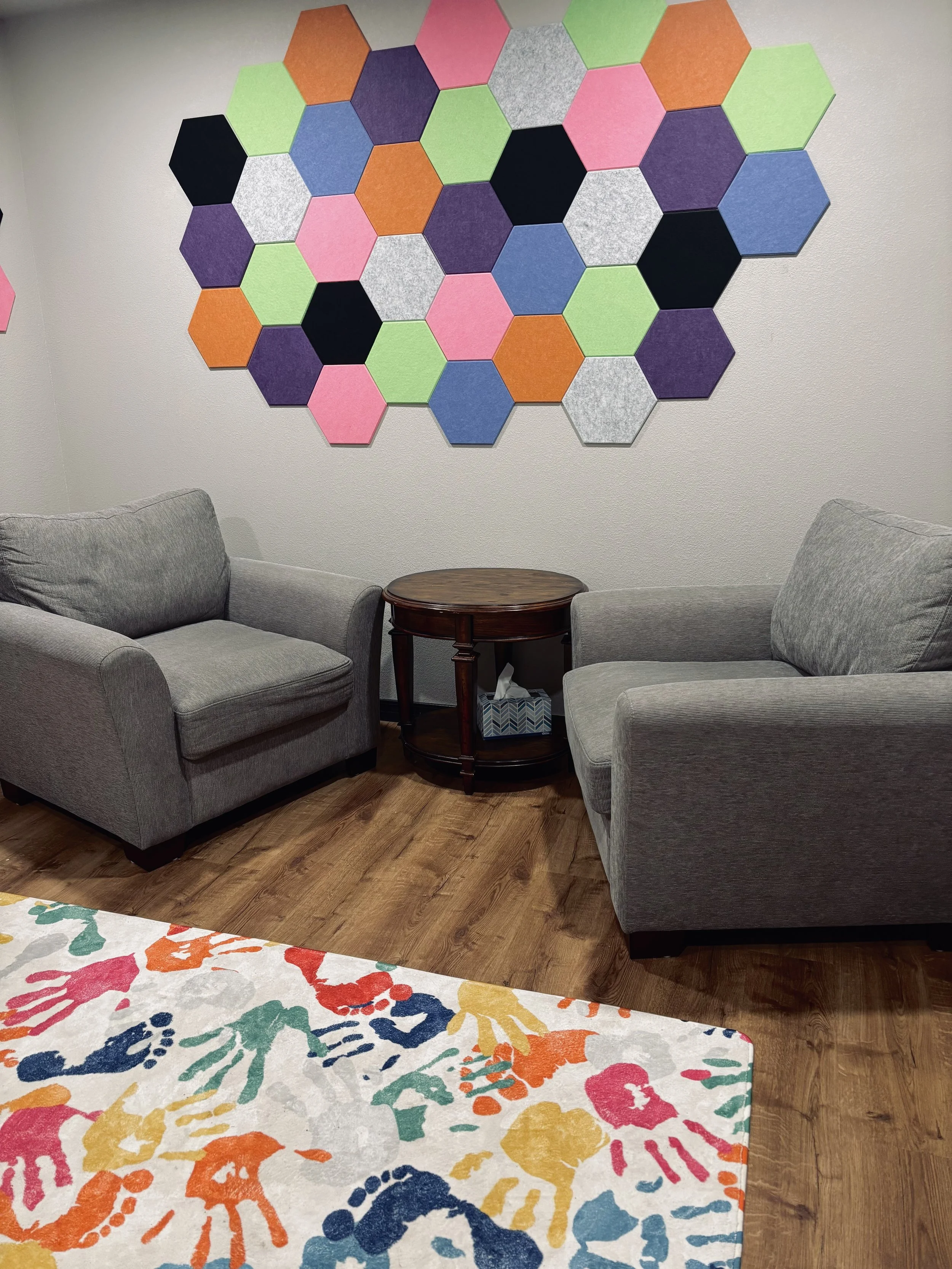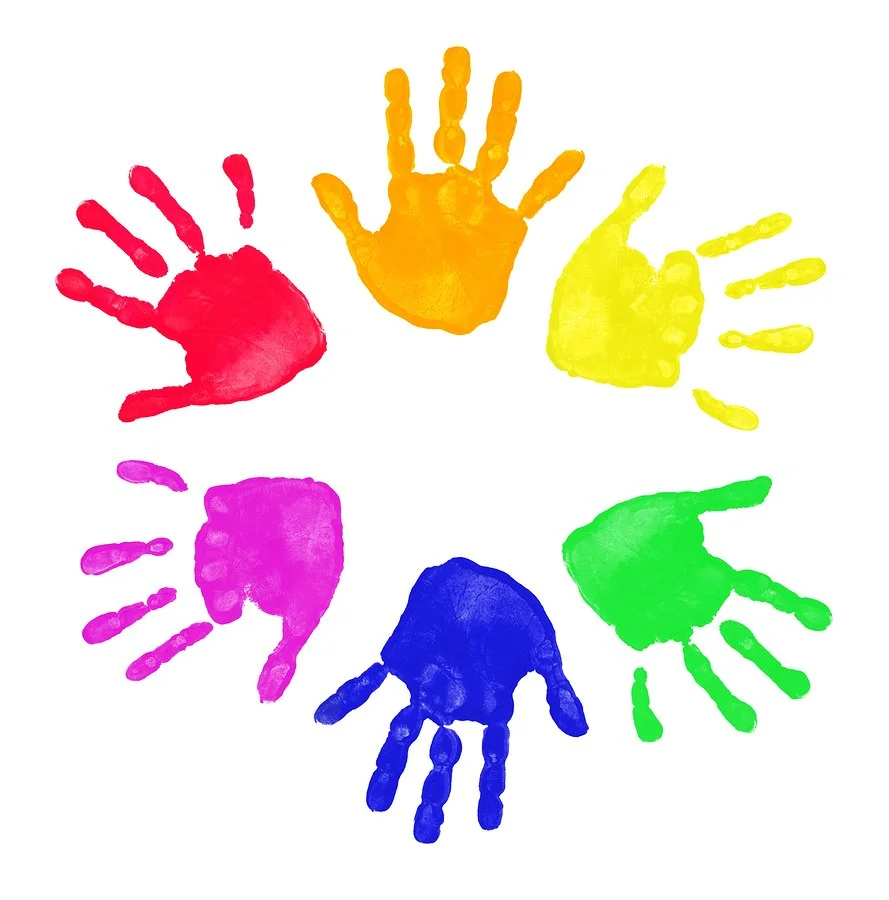Our Services
Providing a Multidisciplinary Team Approach to Child Abuse Investigations
WHAT WE PROVIDE
Ryan’s House is a safe, child-focused place where children and families impacted by abuse receive compassionate, coordinated care. We bring together professionals from law enforcement, child welfare, medical, mental health, and legal fields to ensure every child’s voice is heard and every family is supported.
Our Core Services Include:
Forensic Interviews – Neutral, trauma-informed conversations with children to gather information in a safe setting
Family Advocacy & Support – Emotional support, resource referrals, and guidance through the investigation and healing process
Sexual Assault Forensic Examinations – Non-invasive, specialized medical exams conducted by trained providers to assess and document potential abuse, while prioritizing the child’s comfort and emotional well-being
Mental Health Referrals – Connections to trusted, trauma-informed therapists and counselors
Multidisciplinary Team Coordination (MDT) – Collaborative case review and response by child protection professionals
Prevention & Education Programs – Outreach and training for schools, caregivers, and community partners to prevent abuse and promote safety
At Ryan’s House, we believe every child deserves safety, dignity, and hope—and every family deserves support.
-
What Is a Forensic Interview?
A forensic interview is a safe, child-centered conversation designed to help children share important information when there are concerns about abuse or neglect. These interviews are conducted by specially trained professionals in a welcoming, private setting at Ryan’s House Child Advocacy Center.
Why It Matters
Children should never have to tell their story over and over. A forensic interview allows them to speak with one caring adult who listens without judgment, while other team members observe from a separate room. This helps protect the child from further trauma and ensures the information is gathered in a way that supports both healing and justice.
Who Conducts the Interview?
Our forensic interviewers are trained in child development, trauma-informed care, and legally sound techniques. They ask open-ended questions and follow the child’s lead—never pressuring or suggesting answers.
What Families Can Expect
A calm, child-friendly environment
A single, respectful conversation with a trained interviewer
Support from our multidisciplinary team, including law enforcement, child welfare, and medical professionals
A focus on safety, dignity, and emotional well-being
Our Commitment
At Ryan’s House, we believe every child deserves to be heard, protected, and supported. Forensic interviews are just one part of our mission to provide compassionate care and coordinated services for children and families.
-
What is a Family Advocate?
A Family Advocate is a trained professional who supports children and their caregivers throughout the investigation and healing process. They offer emotional support, help families understand their rights, and connect them to resources like counseling, legal aid, and emergency assistance.
What kind of support do you offer families?
We provide:
Emotional support and crisis intervention
Help navigating the child protection and legal systems
Referrals to mental health, medical, and social services
Safety planning and resource coordination
Assistance with victim compensation applications
Is there a cost for advocacy services?
No. All services provided by Ryan’s House—including family advocacy—are free of charge to children and families.
Will someone help me understand what’s happening in my child’s case?
Yes. Your Family Advocate will walk you through each step of the process, explain what to expect, and answer any questions you have. We’re here to make sure you never feel alone or confused.
Can you help with counseling or therapy?
Absolutely. We work closely with trauma-informed mental health providers and can help you find the right support for your child and family. We’ll assist with referrals and follow-up to make sure your needs are met.
What if I need help with food, housing, or other basic needs?
We understand that families in crisis often face multiple challenges. Our advocates can connect you with local resources for food, shelter, transportation, and more. Just let us know what you need—we’re here to help.
Is my information kept private?
Yes. We follow strict confidentiality protocols to protect your family’s privacy. Information is only shared with your consent or when required by law to ensure your child’s safety.
How do I contact a Family Advocate?
You can call us directly at 918-420-2273 or use our secure contact form on the Contact Us page. We’ll respond promptly and compassionately.
-
What is a sexual assault forensic exam?
A sexual assault forensic exam is a specialized medical evaluation performed by trained professionals to assess for signs of abuse, collect potential evidence, and ensure the child’s physical well-being. It is non-invasive and designed to feel similar to a regular check-up, with the child’s comfort and consent prioritized throughout.
Is the exam painful or scary for the child?
No. The exam is conducted in a child-friendly room with comforting decor and distraction tools. Children may have a support person present, and they can stop the exam at any time. No restraints are used, and the process is explained in age-appropriate language.
Who performs the exam?
The exam is conducted by nurse practitioners or medical professionals with specialized training in child sexual abuse evaluations. They work closely with our multidisciplinary team to ensure a coordinated and trauma-informed response.
Do parents or caregivers stay with the child during the exam?
Yes, if the child wishes. A trusted adult can remain in the room to provide comfort and support.
Is there a cost for services at Ryan’s House?
No. All services, including forensic interviews and medical exams, are provided at no cost to the child or family.
What happens after the exam?
Findings from the exam are shared with the investigative team to help determine next steps. Families receive follow-up support, referrals, and guidance from our advocates.
-
Why is mental health support important after abuse?
Children and families impacted by abuse often experience emotional and psychological stress. Trauma-informed therapy can help children process their experiences, build resilience, and begin healing. It also supports caregivers in understanding trauma and fostering recovery.
Do you provide counseling at Ryan’s House?
While we don’t offer therapy on-site, we work closely with trusted, trauma-informed mental health providers in the community. Our Family Advocates will help you find the right fit and guide you through the referral process.
How do I get a referral for mental health services?
Your Family Advocate will talk with you about your child’s needs and help identify appropriate providers. We’ll assist with scheduling, paperwork, and follow-up to make sure your family gets connected to care.
What types of therapy are available?
We refer families to providers who offer:
Trauma-focused cognitive behavioral therapy (TF-CBT)
Play therapy
EMDR (Eye Movement Desensitization and Reprocessing)
Family therapy and caregiver support
Other evidence-based trauma treatments
Is therapy required?
No. Therapy is always voluntary. We encourage it because it can be a powerful tool for healing, but we respect each family’s readiness and choice.
Will my insurance cover therapy?
Many providers accept Medicaid, private insurance, or offer sliding scale fees. If cost is a concern, let your advocate know—we’ll help explore options and connect you to resources like victim compensation.
How long does therapy take?
Every child is different. Some may benefit from short-term support, while others may need longer-term care. Your therapist will work with you to develop a plan that meets your child’s unique needs.
Is my child too young for therapy?
No child is too young to benefit from trauma-informed support. Therapists use age-appropriate approaches—including play and expressive therapies—to help even very young children feel safe and understood.
What if I’m not sure my child needs therapy?
That’s okay. We’re here to talk it through. Your advocate can help you explore concerns, answer questions, and connect you with professionals who can assess your child’s needs.
-
What is prevention education?
Prevention education teaches children, families, and communities how to recognize, respond to, and reduce the risk of abuse. It empowers individuals with knowledge and tools to stay safe and support others.
Who can participate in your prevention programs?
We offer programs for:
Children and youth (Pre-K through high school)
Parents and caregivers
Educators, school staff, and youth-serving professionals
Community groups, faith leaders, and first responders
What topics do you cover?
Our education programs include:
Body safety and boundaries
Recognizing safe vs. unsafe behaviors
Internet and social media safety
Mandated reporting and child protection laws
Trauma-informed care and resilience building
Supporting survivors and reducing stigma
Are your programs age-appropriate?
Yes. All content is tailored to the developmental level of each audience. For children, we use engaging, non-threatening language and activities. For adults, we provide practical tools and evidence-based strategies.
Do you offer training for professionals?
We do. Ryan’s House provides continuing education and customized workshops for professionals in education, law enforcement, healthcare, and social services. Topics include trauma-informed response, multidisciplinary collaboration, and best practices in child abuse prevention.
Can you come to our school or organization?
Yes! We offer on-site presentations, virtual trainings, and outreach events. To schedule a session, contact our Prevention & Education Coordinator through the Contact Us page or call us directly.
Is there a cost for these programs?
No. Thanks to grant funding and community support, our prevention and education services are provided free of charge.
How can I help promote prevention in my community?
You can:
Invite us to speak at your school, church, or workplace
Share our resources on social media
Volunteer or donate to support outreach efforts
Advocate for child safety policies and education in your local schools
-
An MDT, or Multidisciplinary Team, is a collaborative group of professionals from different fields who work together to respond to cases of child abuse and neglect. The goal is to ensure a coordinated, trauma-informed approach that prioritizes the child’s safety, well-being, and access to justice.
Who’s on an MDT?
Typical members include:
Law Enforcement – Investigates criminal aspects of abuse
Child Protective Services (CPS) – Assesses safety and provides protective interventions
Prosecutors – Evaluate cases for legal action and prosecution
Medical Professionals – Conduct forensic medical exams and assess health impacts
Mental Health Providers – Offer trauma-informed therapy and support
Victim Advocates – Guide families through the process and connect them to resources
Forensic Interviewers – Conduct neutral, developmentally appropriate interviews with children
What Does an MDT Do?
Coordinates investigations to avoid duplication and reduce trauma to the child
Reviews cases collectively to ensure all aspects—legal, medical, emotional—are addressed
Shares information across agencies to improve outcomes and accountability
Develops protocols and best practices for child-centered care
Why It Matters
MDTs are the backbone of the Child Advocacy Center (CAC) model. They ensure that no child “falls through the cracks” by combining expertise and compassion across disciplines. In Oklahoma, the Ryan Luke Law made MDTs a legal requirement for serious child abuse cases—turning tragedy into systemic reform.



